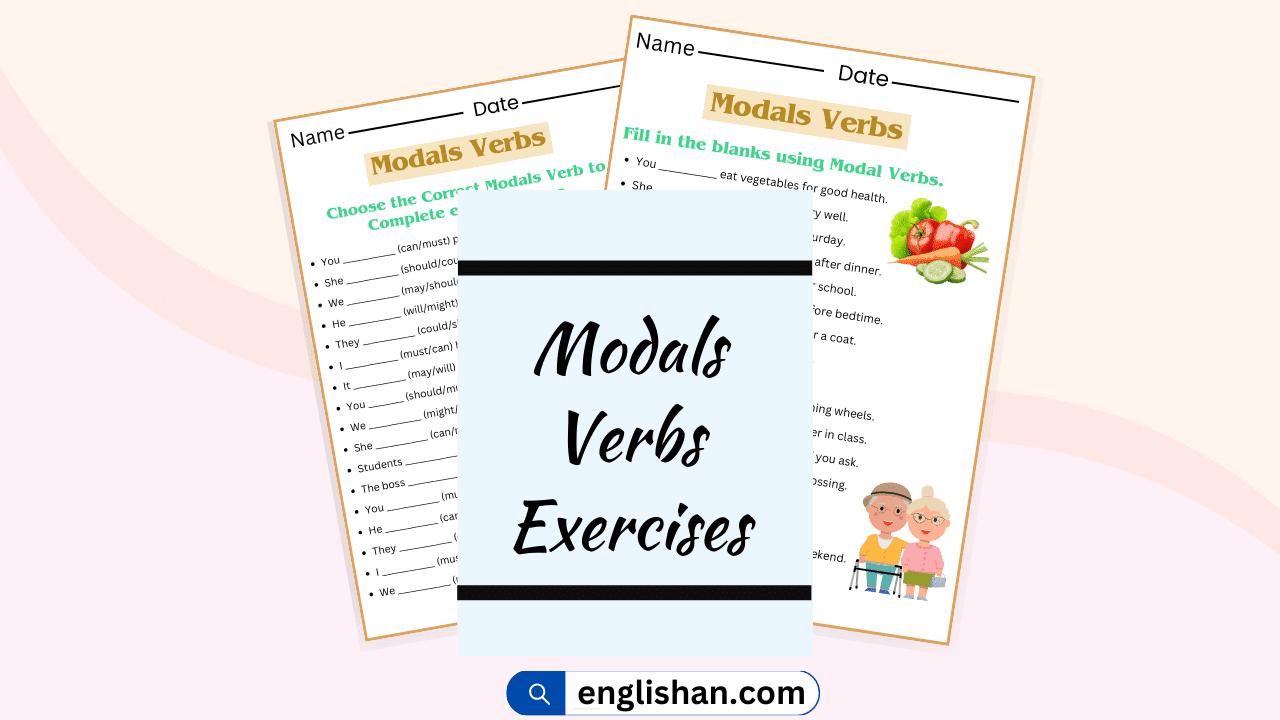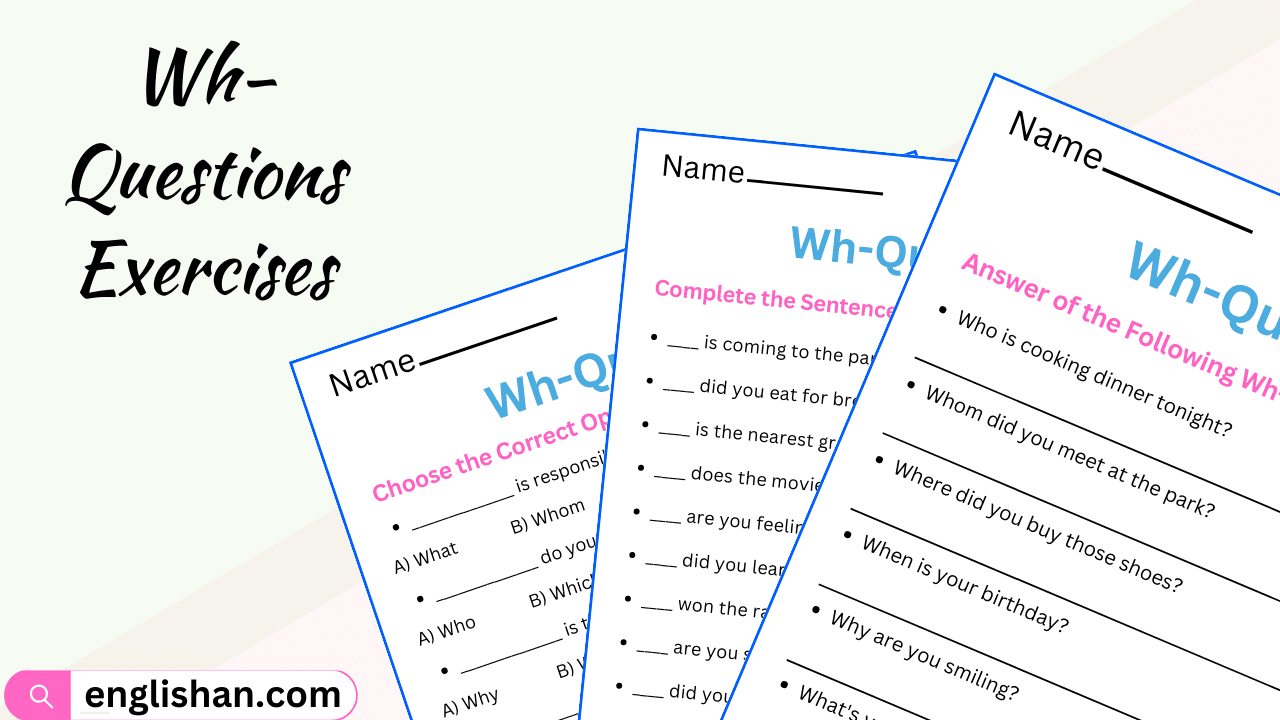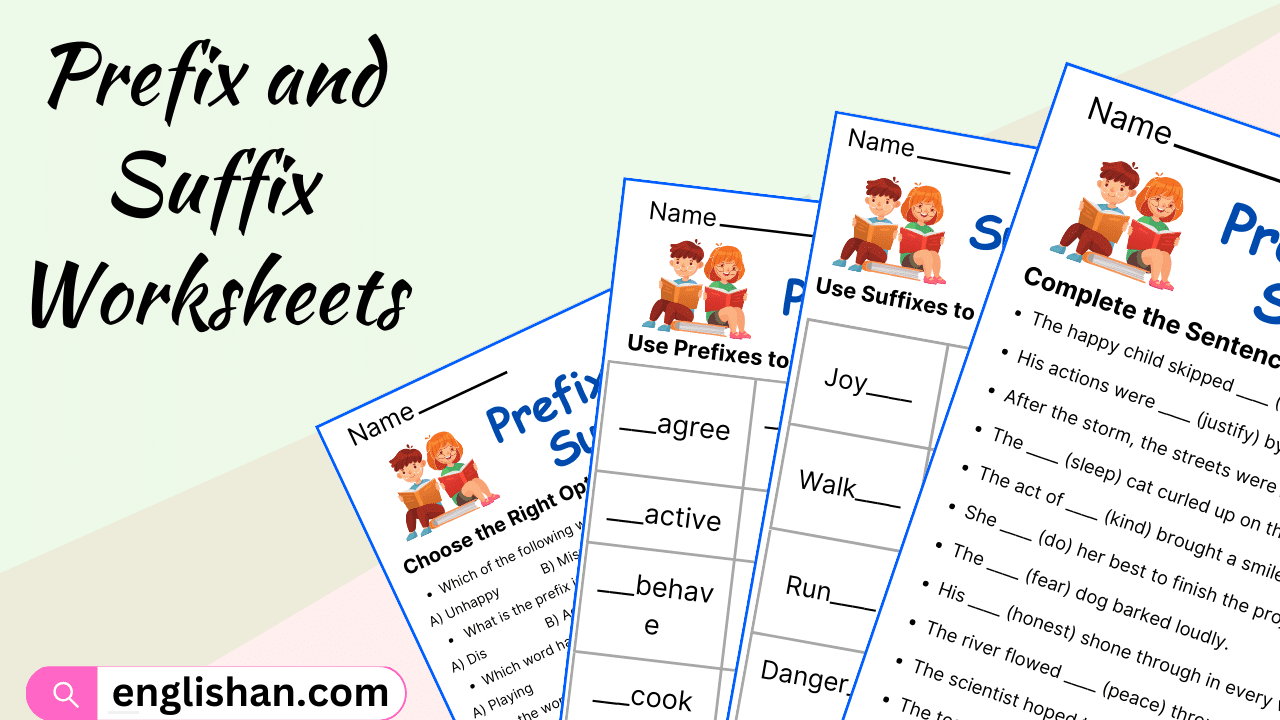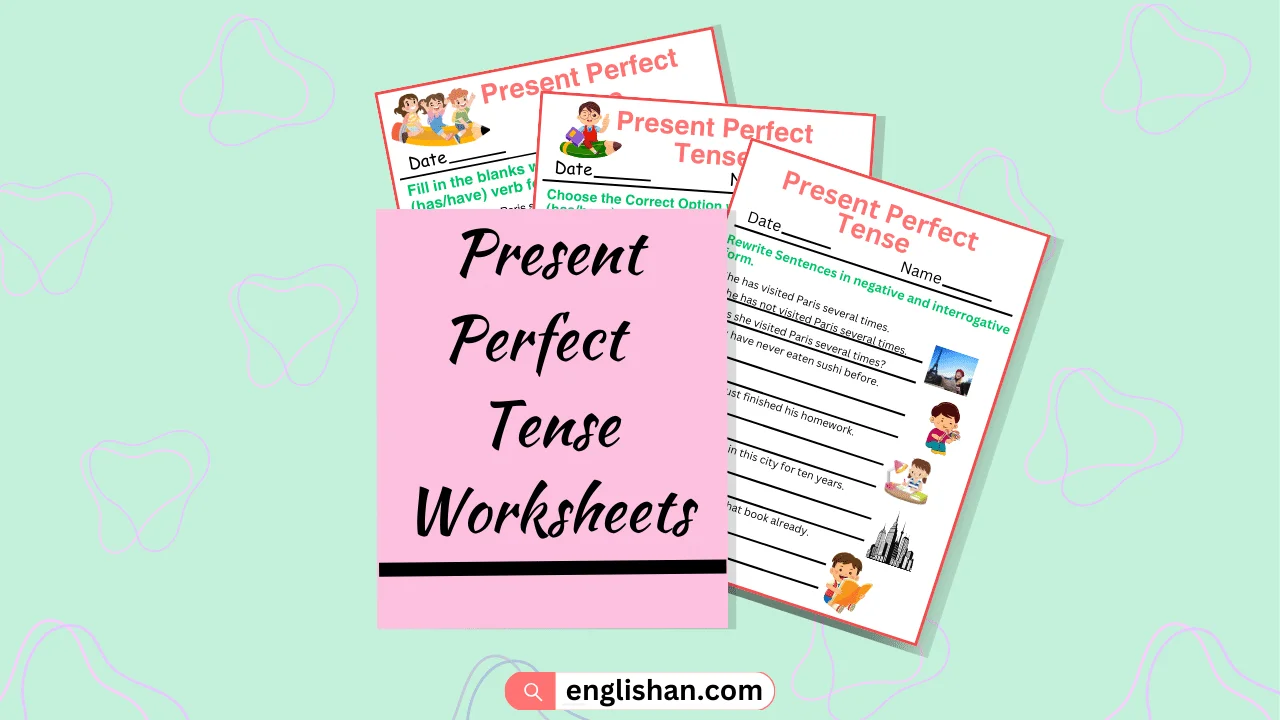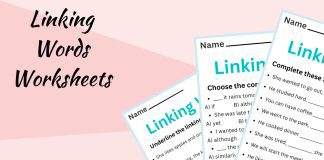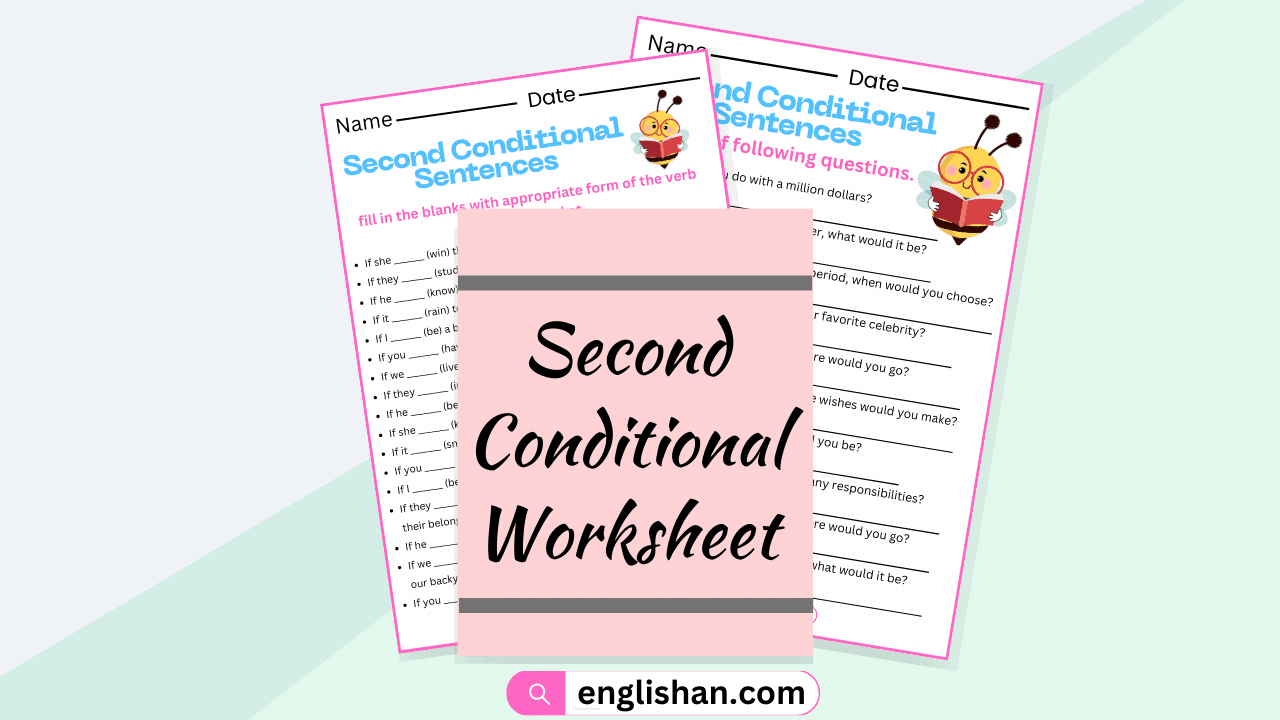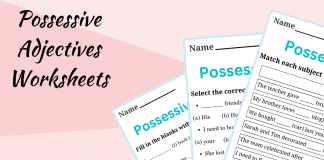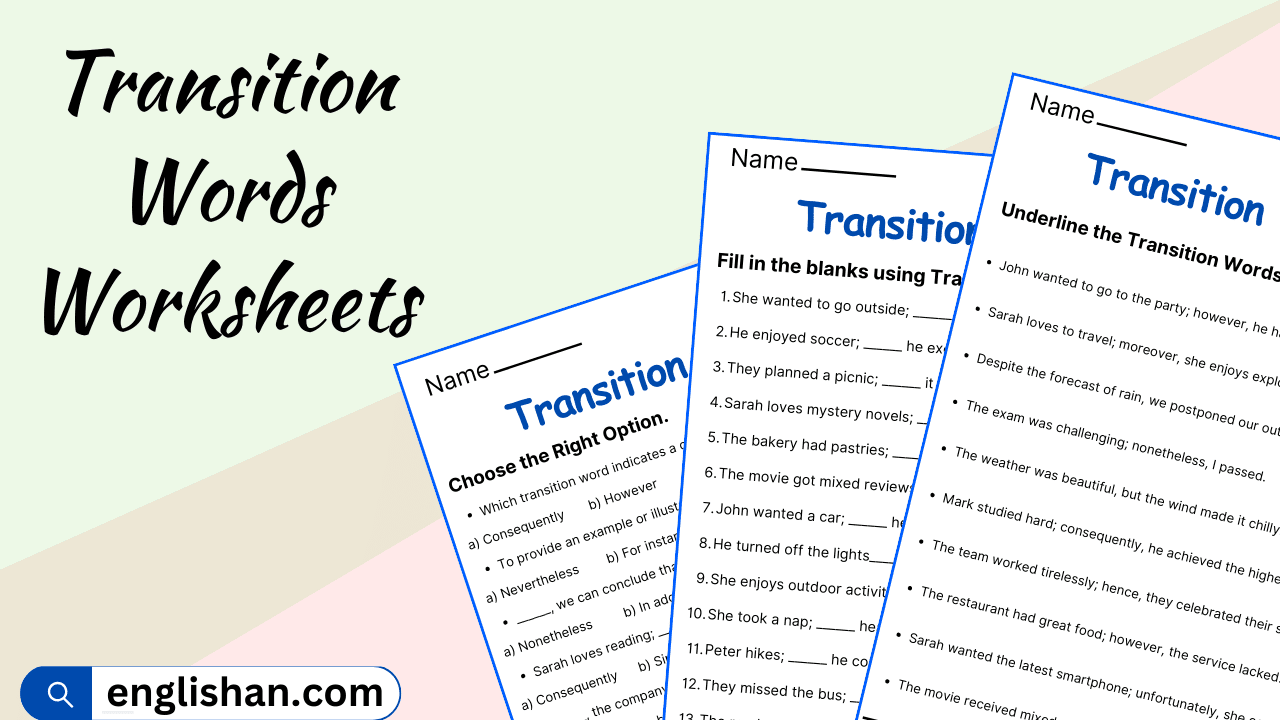Contents
Adjectives make our sentences colorful by describing things. Worksheets on adjectives are like exciting games where you learn to use words creatively. These Worksheets on adjectives help you describe things better, making your stories and essays more interesting. Get ready to explore the world of adjectives through fun and interactive activities!
What is Adjectives
Adjectives are special words that make sentences more interesting. They describe things or people, telling us more about them. For example, in the phrase “a red apple,” “red” is an adjective because it describes the apple. Adjectives help us imagine and understand things better by adding details.
Types of Adjectives
- Descriptive Adjectives: These adjectives describe the characteristics or qualities of a noun. Example are:
The happy children played in the park.
- Quantitative Adjectives: These adjectives indicate the quantity of something. some, many, few, all, several etc. are quantitative adjectives. For Example:
I have three books on my shelf.
- Demonstrative Adjectives: These adjectives indicate which noun is being referred to. This, that, these, those are demonstrative adjectives. For Example:
I like this car
- Possessive Adjectives: These adjectives show possession or ownership. My, your, his, her, its, our, their are Possessive Adjectives For Example,
She is wearing her mother’s necklace.
- Interrogative Adjectives These adjectives are used to ask questions. The interrogative adjectives are which, what, whose. For example,
which book do you prefer?
- Indefinite Adjectives: These adjectives refer to non-specific items or quantities. Some, any, several, many, few, all, etc are indefinite adjectives. For example,
He bought some apples from the store.
- Comparative Adjectives: These adjectives are used to compare two or more things. Most comparatives end in “er. Bigger, smarter, faster are comparative Adjectives. Examples are:
This book is better than that one.
She is more intelligent than him.
- Superlative Adjectives: These adjectives are used to compare three or more things. Most superlatives end in “-est.” biggest, smartest, fastest are superlative Adjectives. Examples are:
Mount Everest is the tallest mountain.
She is the most talented singer.
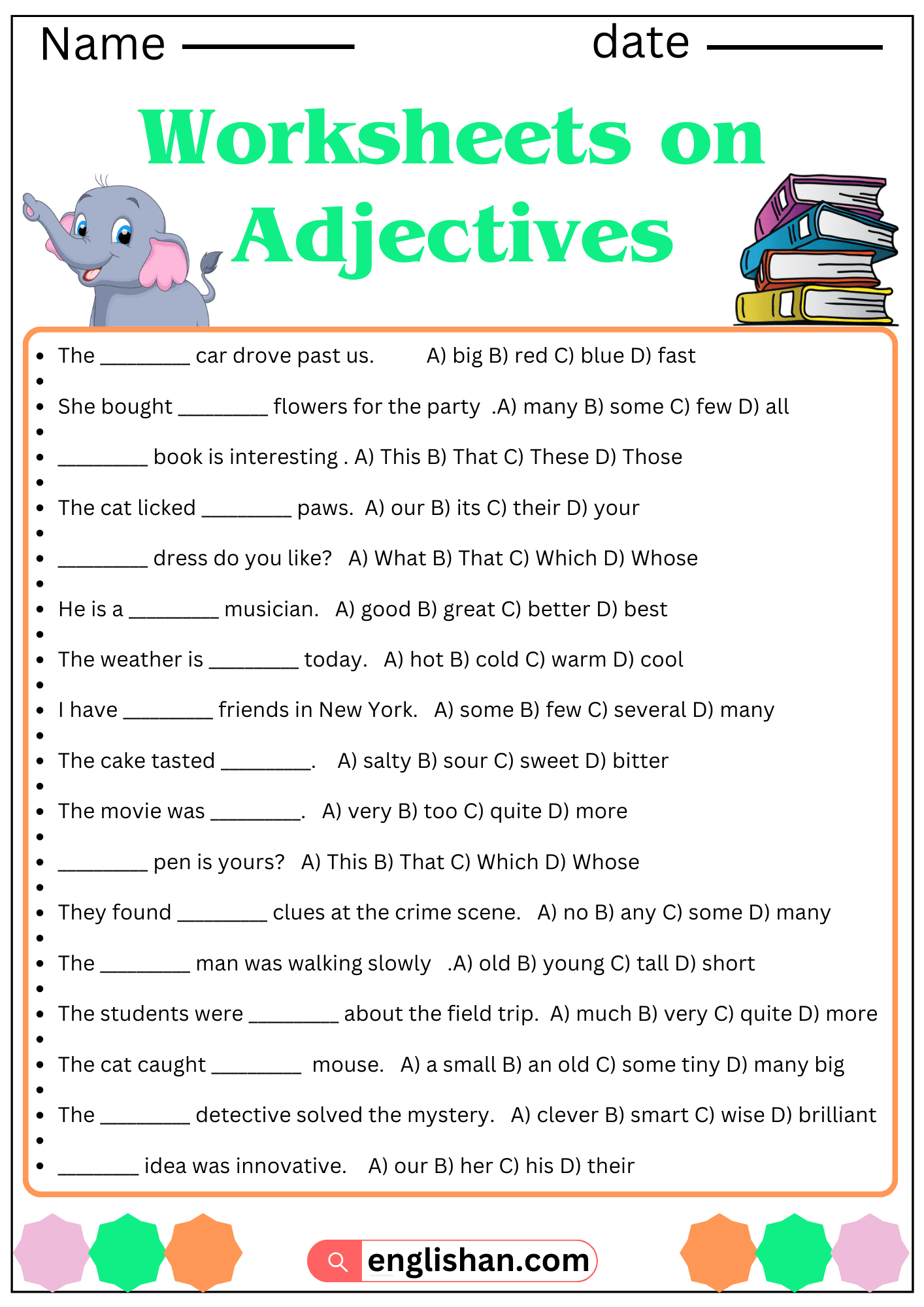
Worksheets on Adjectives
Exercise 1:Identify Types of Adjectives in Mcqs
- The __________ car drove past us.
A) big B) red C) blue D) fast
- She bought __________ flowers for the party.
A) many B) some C) few D) all
- __________ book is interesting.
A) This B) That C) These D) Those
- The cat licked __________ paws.
A) our B) its C) their D) your
- __________ dress do you like?
A) What B) That C) Which D) Whose
- He is a __________ musician.
A) good B) great C) better D) best
- The weather is __________ today.
A) hot B) cold C) warm D) cool
- I have __________ friends in New York.
A) some B) few C) several D) many
- The cake tasted __________.
A) salty B) sour C) sweet D) bitter
- The movie was __________.
A) very B) too C) quite D) more
- __________ pen is yours?
A) This B) That C) Which D) Whose
- They found __________ clues at the crime scene.
A) no B) any C) some D) many
- The __________ man was walking slowly.
A) old B) young C) tall D) short
- The students were __________ about the field trip.
A) much B) very C) quite D) more
- The cat caught __________ mouse.
A) a small B) an old C) some tiny D) many big
- The __________ detective solved the mystery.
A) clever B) smart C) wise D) brilliant
- _________ idea was innovative.
A) our B) her C) his D) their
Exercise 2:Identify Adjectives in Sentences
40 sentences by using all types of adjectives:
- The green parrot flew gracefully across the sky.(Descriptive)
- She found some interesting books at the library. (Quantitative)
- This cake is absolutely delicious! (Demonstrative)
- His car is parked in front of the house. (Possessive)
- Which movie do you want to watch tonight? (Interrogative)
- The happy children played in the park. (Descriptive)
- A few people attended the seminar. (Quantitative)
- Several students volunteered for the community service project. (Quantitative)
- Their dog is very friendly. (Possessive)
- No pets are allowed in the apartment building. (Indefinite)
- The large pizza arrived hot and cheesy. (Descriptive)
- Any help will be appreciated. (Indefinite)
- My sister is a talented musician. (Possessive)
- The blue ocean stretched out endlessly before them. (Descriptive)
- All the guests enjoyed the party. (Definite)
- She wore a beautiful dress to the ball. (Descriptive)
- Little progress was made on the project. (Indefinite)
- These cookies are freshly baked. (Demonstrative)
- The wise owl hooted in the night. (Descriptive)
- Many people attended the concert. (Quantitative)
- Your idea is brilliant! (Possessive)
- Which route should we take to avoid traffic? (Interrogative)
- The tiny kitten mewed softly. (Descriptive)
- Most students completed the assignment on time. (Definite)
- Her painting won first prize at the art exhibition. (Possessive)
- Another opportunity will come your way. (Indefinite)
- Both candidates were well-prepared for the debate. (Definite)
- The patient doctor listened carefully to his concerns. (Descriptive)
- More information is needed to solve the problem. (Indefinite)
- His speech was eloquent and inspiring. (Possessive)
- Few people can solve this complex puzzle. (Indefinite)
- Each student received a certificate of participation. (Definite)
- The modern architecture of the building impressed everyone. (Descriptive)
- My parents are celebrating their anniversary tomorrow. (Possessive)
- Which book are you reading for the book club? (Interrogative)
- The tasty soup warmed her on the cold evening. (Descriptive)
- Every child deserves a good education. (Definite)
- The brave firefighter rescued the family from the burning house. (Definite)
- Their decision to travel abroad surprised everyone. (Possessive)
- Most of the students passed the difficult exam. (Definite)
FAQs:
An adjective is a word that describes or gives more information about a noun (person, place, thing, or idea). It helps to tell us what something is like.
Examples:
1. A big house
2. A happy dog
3. A red apple
Here are 12 example sentences using adjectives:
1. The big house is on the hill.
2. She has a small dog.
3. The happy child played in the park.
4. The sad movie made me cry.
5. The red apple is on the table.
6. That is a beautiful painting.
7. The tall man reached the top shelf.
8. The short pencil broke easily.
9. The fast car zoomed down the road.
10. The slow turtle crossed the path.
11. The bright stars lit up the night sky.
12. The room was quiet during the test.
The 4 types of adjectives are:
1. Descriptive Adjectives – These describe qualities or characteristics of a noun.
Example: beautiful, tall, smart
2. Quantitative Adjectives – These describe the quantity or amount of a noun.
Example: some, many, few
3. Demonstrative Adjectives – These point out specific nouns.
Example: this, that, these, those
4. Possessive Adjectives – These show ownership or possession.
Example: my, your, his, her, their
Here are 7 simple rules for adjectives:
1. Before nouns – Example: A blue shirt.
2. After linking verbs – Example: The cake is delicious.
3. Comparing things – Example: Taller, Tallest.
4. Stay the same in singular or plural – Example: Big dog, big dogs.
5. Use “more” or “most” for long adjectives – Example: More beautiful.
6. Show quantity – Example: Few people, many dogs.
7. Position can change meaning – Example: A former teacher vs A teacher former.
You May Also Like
